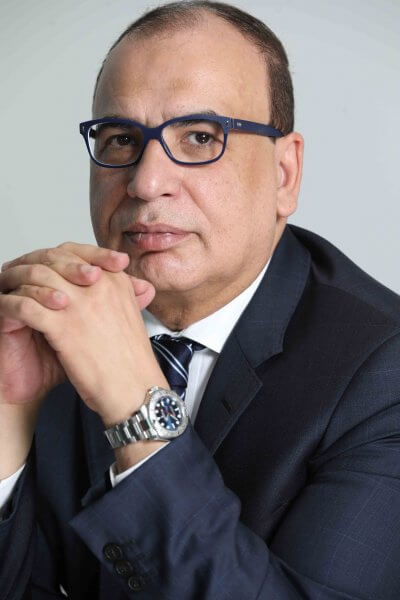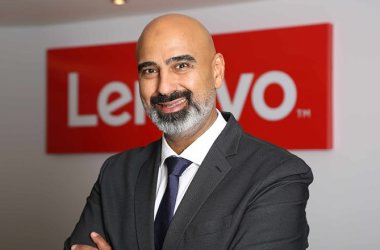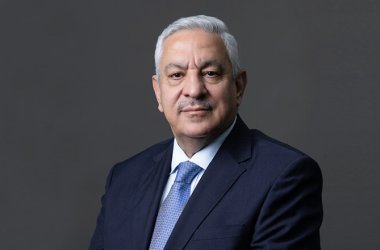
Dell EMC’s senior vice president for the Middle East, Turkey and Africa region Mohammed Amin tells CNME why he believes the firm has the edge over its behemoth competitors and why it will be the “last man standing” in the IT infrastructure space.
For Mohammed Amin, the autonomous car encompasses the biggest ethical and technical challenges brought on by digital transformation. “If it detects an obstacle such as a wall, it will have to send that information back to the cloud and wait for a decision on what to do next,” Dell EMC’s senior vice president for the Middle East, Turkey and Africa says. “Obviously the decision needs to be instantaneous or we know what will happen. We need compute power at the edge. Dell Technologies is reading the future in the right way and is taking the right steps to make that a reality. We’re clear on our vision and mission – to help and support human progress.”
Dell’s $67 billion acquisition of enterprise storage and cloud provider EMC in 2016 was the biggest deal in history between two technology companies, and the move is already bearing fruit for the new company, Dell Technologies, which recorded revenues of $89.6 billion as of Q3 Fiscal Year 2019 (trailing twelve months). Over the past three years, the firm has spent $12.8 billion on R&D, and “90%” of that investment has been devoted to software and software-defined projects. “That’s a key part of our AI value proposition,” Amin says. “Our customers are exposed more and more every day to the breadth and depth of the Dell Technologies portfolio, not just Dell EMC’s. This is our value proposition to organisations to help them build their digital future. We’ve come a long way to work as a unique family of businesses that offer organisations the trust, service, choice and global scale of a large enterprise.”
Along with Dell’s Client Solutions group, virtualisation market leader VMware, RSA, Pivotal, SecureWorks and Boomi, Dell EMC now boasts a formidable value proposition under the Dell Technologies brand, according to Amin. “As the market leader in enterprise storage and servers as per IDC, we certainly have the strongest hand in the enterprise technology space offering organisations robust technology to address their essential infrastructure needs,” Amin says. “The companies we’re competing with are undoubtedly great, and I believe some of them compete with us in more than one line of business, however no organisation competes with us across our end to end portfolio from the edge to the core to the cloud.”
Dell EMC’s market share for enterprise storage currently sits at an impressive 68.4% in Egypt, 46% in the UAE and 57.8% in Saudi Arabia. “We’ve seen double-digit growth in the META region year-on-year and are number one in storage and servers,” Amin says. “I believe the UAE is the most mature economy in the Gulf and will continue to diversify. We’ll continue to attract the best talent in our regional headquarters in the UAE and across the region.”
However, Dell EMC will not rely solely on its formidable position in the IT infrastructure space, Amin says, and is determined to make the most of the seven brands of Dell Technologies. “We’ll be the last man standing in storage, infrastructure and PCs, but we’re mindful that the future will be software-defined,” he says. “The cloud still needs infrastructure, and we will always be there to deliver that. It’s normal that hardware becomes commoditised over time. Since people began saying we’d entered the post-PC era, over five billion have been sold, so you could say we’re now in the post-post-PC era.”
Dell EMC also experienced “double digit” growth in the UAE last year, with 20% of that business coming from new customers. This is perhaps one of the 2016 acquisition’s biggest benefits – bringing two client bases under one brand. “Our companies didn’t have a conflict of product or go-to-market approach. Dell brought a lot of accounts to the table, and so did EMC,” Amin says. “The acquisition has been so successful because we weren’t selling to the same customers before. In the Middle East, Turkey and Africa region, we will finish well for the year.”
Amin has been particularly impressed with the pace of change in the Middle East’s largest market, Saudi Arabia, and is encouraged by the government’s approach to technological change. In late-2017, the Saudi government announced plans to build $500 billion high-tech city NEOM by 2030, and has also announced a range of deals with blue-chip technology firms. “Saudi Arabia’s Crown Prince Mohammed bin Salman and the country’s leadership are doing an amazing job,” he says. “Saudi has seen changes in the last 24 months that most people didn’t think were possible. Saudi Arabia has the right vision and I wish the best for the present leadership. Saudi is a large country and is well positioned to achieve its transformation goals. I believe that IT spend is a necessity and it will continue to grow in the region and in Saudi Arabia.”
However, Amin is willing to acknowledge that things haven’t gone quite as well as planned in some of the markets his remit covers. He concedes that market realities have hampered overall economic progress in parts of the Middle East, Turkey and Africa region, and have posed challenges for the technology industry. “The biggest challenge of the year has been the currency situation in places like South Africa, Nigeria, Turkey and Egypt,” he says. “It’s created a headwind for business because it is conducted in local currencies, and is undoubtedly a big issue. I do believe the economy has been a bit tougher, and I’m expecting that to continue throughout 2019. Markets are in their correctional years, this is not unique to the region as the emerging market economy globally is challenged.”
Although currencies have been a thorn in the industry’s side, Dell Technologies CEO Michael Dell has nonetheless been impressed with the firm’s regional progress. “He’s very pleased with what we’re doing in the META region and the way we’re growing,” Amin says. “We’ve hired close to 700 people in the region over the last 24 months and he is committed to continued investments in the region.”
In spite of the region’s largely forward-thinking attitude towards technology, Amin believes that as organisations prepare to enter the next era of human-machine partnerships, businesses are torn between optimism and anxiety and largely worried about obsolescence of their businesses unless they accelerate their digital transformation. He is mindful that, without the right technology advisory services and strategic roadmaps, enterprises may fail to fulfil their potential in the digital age. “68% of organisations are struggling to keep up with the relentless pace of industry disruption,” he says. “More than half of them feel threatened by more agile startups.”
Amin believes that one of the biggest barriers that organisations face is getting to grips with this impending change. “The biggest obstacle for digital transformation is the human factor itself,” he says. “I don’t believe there are enough skills that understand the new agenda of IT. The IT industry has to be mindful that IT used to be a business enabler, but is now moving to become the business itself. It’s why CIOs are reporting to the CEO and are asked the million dollar questions for how the business can launch new services that are key to the bottom line.”
The GCC region, meanwhile, is beginning to recognise the potential for technology-induced transformation, both in terms of the way services are delivered and the effect on the job market. A whole host of statistics speak volumes about the way technology will change the world. EY has forecast that artificial intelligence will add $96 billion to the UAE’s economy per year by 2030, while the World Economic Forum believes that 75 million current jobs around the world may be displaced by the shift in the division of labour between humans, machines and algorithms by as early as 2022. Amin is mindful of these effects on a regional level.
“Over the next 10 years, humanity will be exposed to digital experiences on a new scale, and this will have a huge impact on the global workforce,” he says. “By 2030, 85% of the job market will consist of jobs that haven’t been invented yet. That change will create a new profile for the employee of the future. We believe robots and machines will take the load of repetitive tasks that humans do today.
“From a technology industry point of view, the changes that we’ll see in the near future are more drastic, dramatic and severe than everything that’s happened in the last 2,000 years. Artificial intelligence and machine learning, robotics, augmented and virtual reality and digital experiences are becoming part of our life, and will change the IT industry and the way business is done.”





